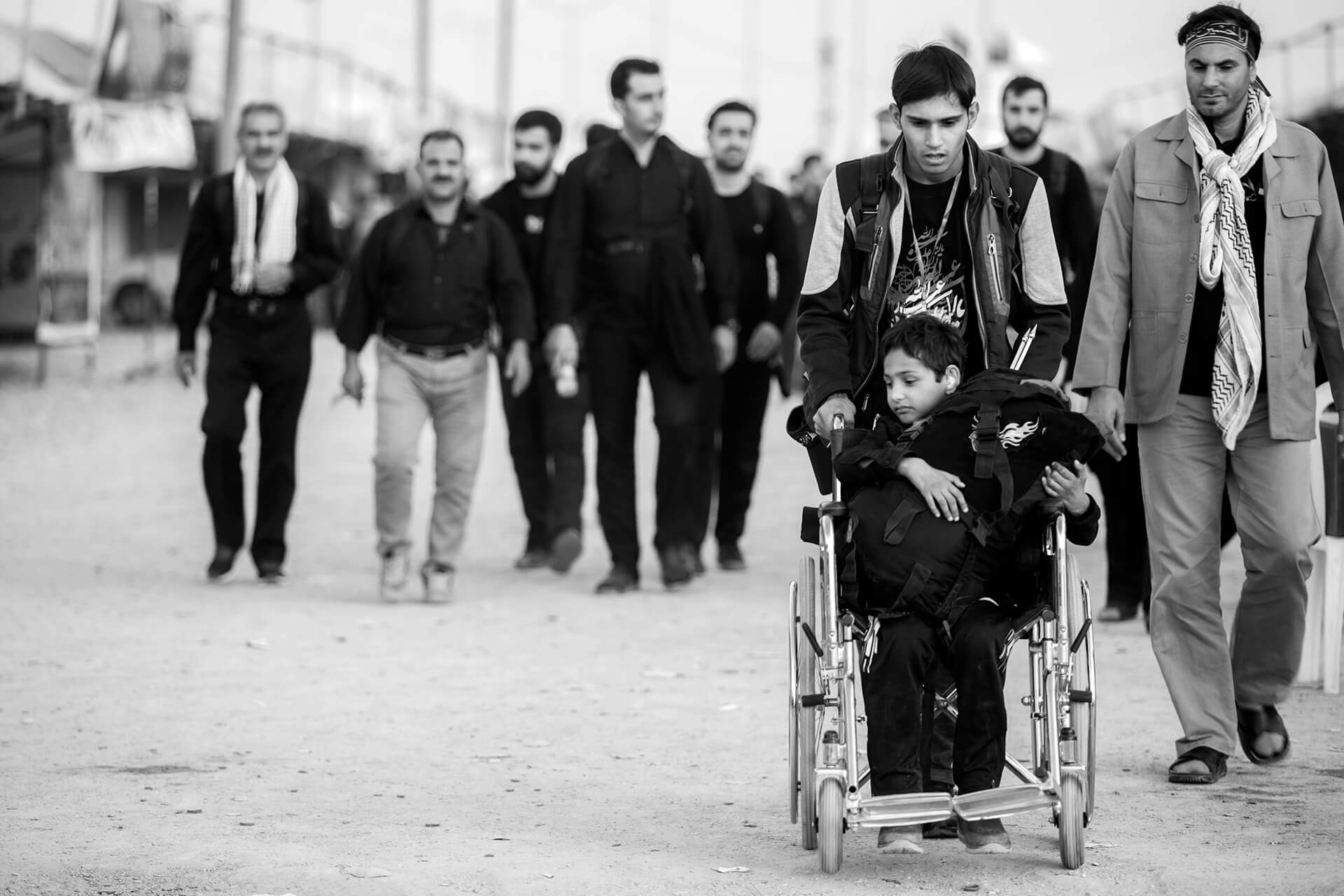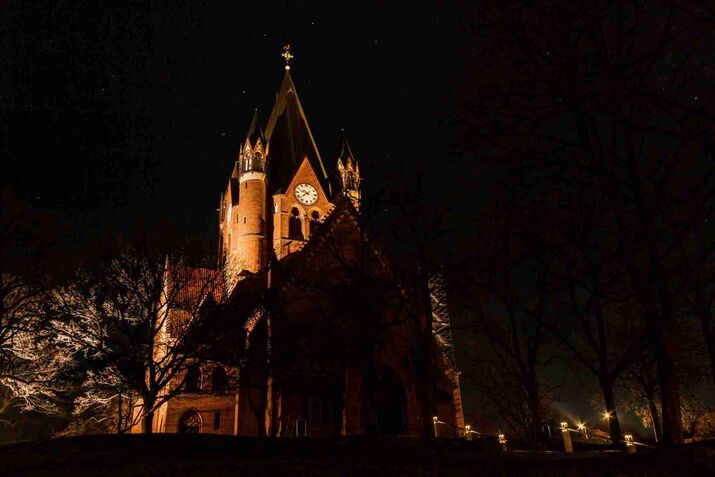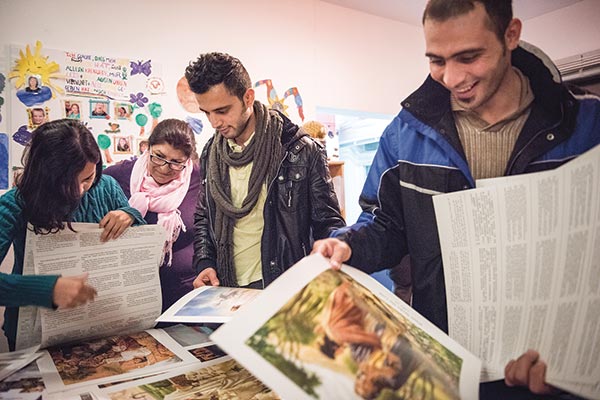Christianity and Disability in the Middle East: Restoring Dignity and Faith
Explore how Christian missions in the Middle East are transforming lives by serving the disabled, restoring dignity, and challenging cultural stigma with compassion.

Introduction
In many parts of the Middle East, disability carries a heavy stigma. Shaped by cultural and religious assumptions, families often view disability as a curse or divine punishment. In Islamic contexts, disability is sometimes interpreted as the result of parental sin or spiritual failure. As a result, disabled individuals are hidden away, deprived of education, and denied basic dignity. Yet into this environment, Christian missions are stepping with a radically different vision - one that sees each person as created in the image of God, worthy of love and dignity. This article examines how mission organizations, particularly NEO US and its regional partners, are transforming communities by serving individuals with disabilities, and how this ministry is reshaping the perception of Christianity in the Middle East.
The Cultural Stigma of Disability
To understand the significance of Christian ministry among the disabled, one must first grasp the depth of the stigma. In many Middle Eastern societies, disability is considered shameful. Families may believe they are cursed, or that their child’s condition reflects divine displeasure. As a result, some keep disabled members confined indoors for years. Reports have surfaced of individuals locked in rooms for decades, with minimal care, in an effort to protect the family’s honor.
This silence extends beyond households. Public policy often fails to provide adequate support for people with disabilities. In countries like Egypt and Iraq, infrastructure such as accessible schools, healthcare, or social services is scarce. Disabled individuals are left to survive on the margins, invisible to broader society. It is precisely in this neglected space that Christian missions have stepped in, bringing not only relief but also hope.
Ministry in Action: Serving the Forgotten
A Miracle in Egypt: The Girl Who Walked
In a small Egyptian town, a young girl was born with a severe disability. Her legs were twisted and weak, leaving her unable to walk. For years, her family carried her wherever she needed to go, resigned to the belief that her condition would never change.
Despite her limitations, the girl began attending a Discovery Bible Study (DBS) group in her community. Week after week, she listened as leaders read stories from the Bible — stories of Jesus healing the blind, the lame, and the sick. For her, these stories were not abstract theology; they were a lifeline. She believed that if Jesus could heal in the first century, He could do it now.
One evening, as her family and community gathered, something extraordinary happened. After hearing the story of Jesus healing a disabled man, she turned to those around her and declared with simple faith: “If Jesus could heal him, He can heal me too.” Then, in front of everyone, she stood up — and walked.
The room erupted in stunned silence, followed by tears and shouts of joy. Her family, who had long carried her, now watched as she took step after step on her own. Word of the miracle spread quickly through the village, drawing neighbors and skeptics alike to see her walk.
Her healing became more than just a personal transformation. It validated the message of the gospel in her community and sparked curiosity among those who had dismissed Christianity as a foreign religion. Today, she continues to walk — a living testimony to the power of faith and the God who still heals.
The Girl Hidden Away for 20 years
For two decades, a young woman in the Middle East lived her life in shadows. Born with disabilities, her family considered her a source of shame. Fearing gossip and dishonor from their neighbors, they kept her hidden away in a back room of their house. She did not go to school, did not play outside, and rarely saw the world beyond her four walls.
When local believers learned of her situation, they began visiting the family. They brought food, prayed, and slowly earned the parents’ trust. Eventually, they were allowed to meet the girl. What they discovered was heartbreaking: a young woman who had been denied the chance to live freely, yet who radiated a quiet resilience.
As the visits continued, the believers shared stories of Jesus — of how He welcomed the marginalized, touched the untouchable, and restored dignity to those society had rejected. For the girl, it was the first time she had heard that her life mattered.
Today, she is no longer hidden. She has joined a community of faith that affirms her worth, and her story has become a powerful witness in her village. Out of secrecy and shame, God brought her into light and dignity.
The Theology of Disability: From Curse to Blessing
Christian ministry to the disabled challenges not only cultural stigma but also theological misconceptions. In John 9, Jesus’ disciples asked whether a man was blind because of his own sin or his parents’ sin. Jesus replied, “Neither… but this happened so that the works of God might be displayed in him.” For many Middle Eastern families, this biblical perspective is revolutionary. Disability is not a curse but an opportunity for God’s glory to be revealed.
This shift in perspective transforms families. Where once they saw shame, they now see dignity. Where once they saw hopelessness, they now see purpose. Christian missions offer not just practical support but also a new narrative that redefines disability through the lens of God’s love.
Why Disability Ministry Matters for Missions
A Visible Testimony
Acts of mercy speak louder than words in societies where Christians are minorities. When missions care for people with disabilities, neighbors take notice. They see a community willing to serve those others reject. This visible testimony often leads to spiritual conversations and, eventually, to faith. As one missions leader noted, “Entire households turn to Christ not because of arguments, but because of compassion.”
Multiplying Impact
Ministry to people with disabilities rarely affects only one person. Because disabled individuals are often dependent on family, serving them impacts entire households. Parents, siblings, and extended relatives are drawn into the circle of care, creating multiple entry points for the gospel.
A Countercultural Witness
In a region where honor and shame shape social dynamics, caring for those considered shameful is profoundly countercultural. This witness disrupts cultural norms and offers a radical alternative vision of community.
Global and Historical Parallels
NEO’s ministry to those living with special needs in the Middle East mirrors the early church’s role in the Greco-Roman world. Historians note that Christianity grew in part because it cared for the marginalized. During epidemics in the 2nd and 3rd centuries, Christians nursed the sick while others fled. They adopted unwanted children and honored the elderly. This countercultural compassion distinguished Christianity and fueled its growth.
Today, Middle Eastern missions organizations like NEO are following the same path. By caring for people with disabilities, they are reclaiming Christianity’s historic role as a community of radical love.
Globally, disability ministry is also gaining recognition. The World Health Organization estimates that 1 in 6 people worldwide live with a disability. In the Global South, where healthcare is limited, these numbers translate to millions of people in need. Missions that prioritize disability ministry are not only meeting urgent needs but also aligning with global realities.
Challenges in Disability Ministry
While impactful, this work is not without obstacles:
- Limited Resources: Medical care, physical therapy, and assistive devices require funding and expertise.
- Cultural Resistance: Some families resist outside help, fearing exposure or dishonor.
- Security Risks: In regions hostile to Christianity, serving openly can invite persecution.
Despite these challenges, missions continue, sustained by volunteers and grassroots leaders. NEO’s model of empowering ordinary people - not just professionals - ensures that ministry can spread even with limited resources.
Lessons for the Global Church
The witness of disability ministry in the Middle East carries profound lessons:
- Redefining Value: Every person bears God’s image, regardless of ability. This truth must shape how the church engages disability globally.
- Compassion as Evangelism: Acts of mercy are not secondary to missions - they are central. The church must reclaim service as a primary form of witness.
- Multiplication Through Families: Serving one member can open doors to entire households. Missions must think relationally, not just individually.
- Countercultural Courage: Just as Middle Eastern believers defy stigma, the global church must challenge cultural norms that devalue the vulnerable.
Conclusion
Christian missions in the Middle East are restoring dignity to the disabled, challenging cultural stigma, and offering a vision of faith rooted in compassion. From Egypt’s hidden rooms to Iraq’s war-torn cities, from Lebanon’s divided neighborhoods to global movements of disability ministry, these stories testify to a God who sees the forgotten and calls His people to do the same.
For the global church, the lesson is clear: ministry to the margins is not optional. It is central to the mission of God. In serving the disabled, Christians are not only caring for the least of these - they are rediscovering the heart of the gospel itself.

.webp)

